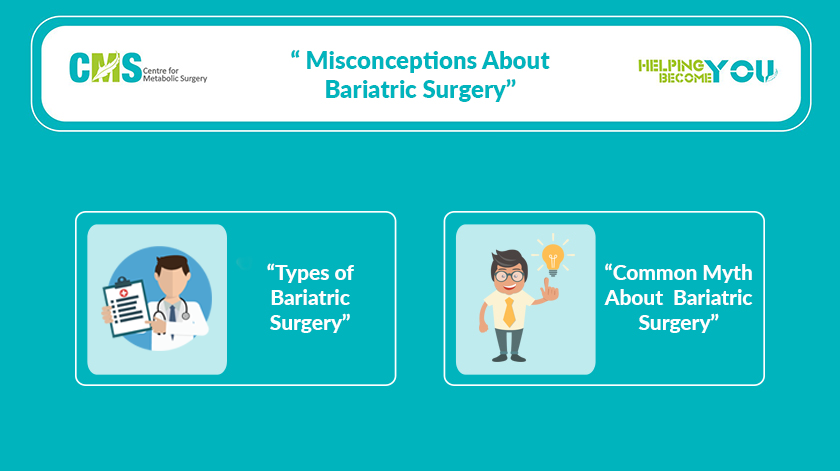
Misconceptions About Bariatric Surgery
Obesity is an epidemic and a BMI index of 35 or more is considered morbid levels of obesity— something which requires clinical intervention. If relying on workouts and regulated diet has not transformed you into a fit individual, maybe it’s time to consider an alternate approach. Before you give up, why not consult a specialist. You would be surprised to know that most bariatric surgery patients maintain successful weight-loss in the long-term.
A typical bariatric (weight-loss) surgery shrinks the size of a stomach to induce quicker satiation and accelerate weight-loss by less calorie consumption. Since no two patients show similar symptoms and require clinical guidance to choose an appropriate surgical option for them, a variety of options are available under the umbrella surgical procedure— Bariatric Surgery. A diabetic patient would require gastric bypass surgery which reduces the size of the stomach and bypass some portion of the small intestine. For patients whose BMIs stand around 50, sleeve gastrectomy is recommended, leaving stomach to the size of a banana. Gastric banding is performed on patients who already maintain a strict diet and exercise regime, avoid high-carbohydrate calories, and are willing and able to have multiple band adjustments. Whether it’s sleeve gastrectomy, Lap-Band or gastric bypass, bariatric surgery is recognized to have a positive impact on the quality of life of patients.
A common myth that delays timely clinical guidance is that a surgery is more threatening than obesity. What patients fail to understand is that morbid level of obesity is not only a physical handicap but also psychologically challenging. Furthermore, a person becomes prone to the attack of comorbidities for e.g. [Type 2 diabetes, Dyslipidemia (High cholesterol), Hypertension (High blood pressure), Heart failure, Asthma etc.]. It is, therefore, recommended to meet your doctor and seek the right treatment. A significant dip in surgery related mortalities is a clear indication of the safety aspect of bariatric surgery. Additionally, Bariatric surgery also contains associated comorbidities reinstalling faith in the patients. There has been a decline of 56% coronary disease, 92% complications of diabetes, and 60% for malignant neoplasia for patients undergoing the surgery.
Quite often we witness patients concerned about the deficiency of essential minerals post-surgery. The malabsorption varies as per diverse patient profiles. It can be controlled by adhering to proper diet and dietary supplements. Patients who are regular with follow-ups with their doctor and monitor their progress are successful in preventing any loss of essential nutrients.
As patients, you need to remember that the misconceptions around a surgical intervention should not hinder you from receiving the care you need. Strong will power, family support and right medical guidance can help you achieve a fit physique and also retain it. Not only weight loss, bariatric surgery significantly improves the psychosocial well-being of patients.

Post a comment
Your email address will not be published. Fields marked (*) are mandatory.